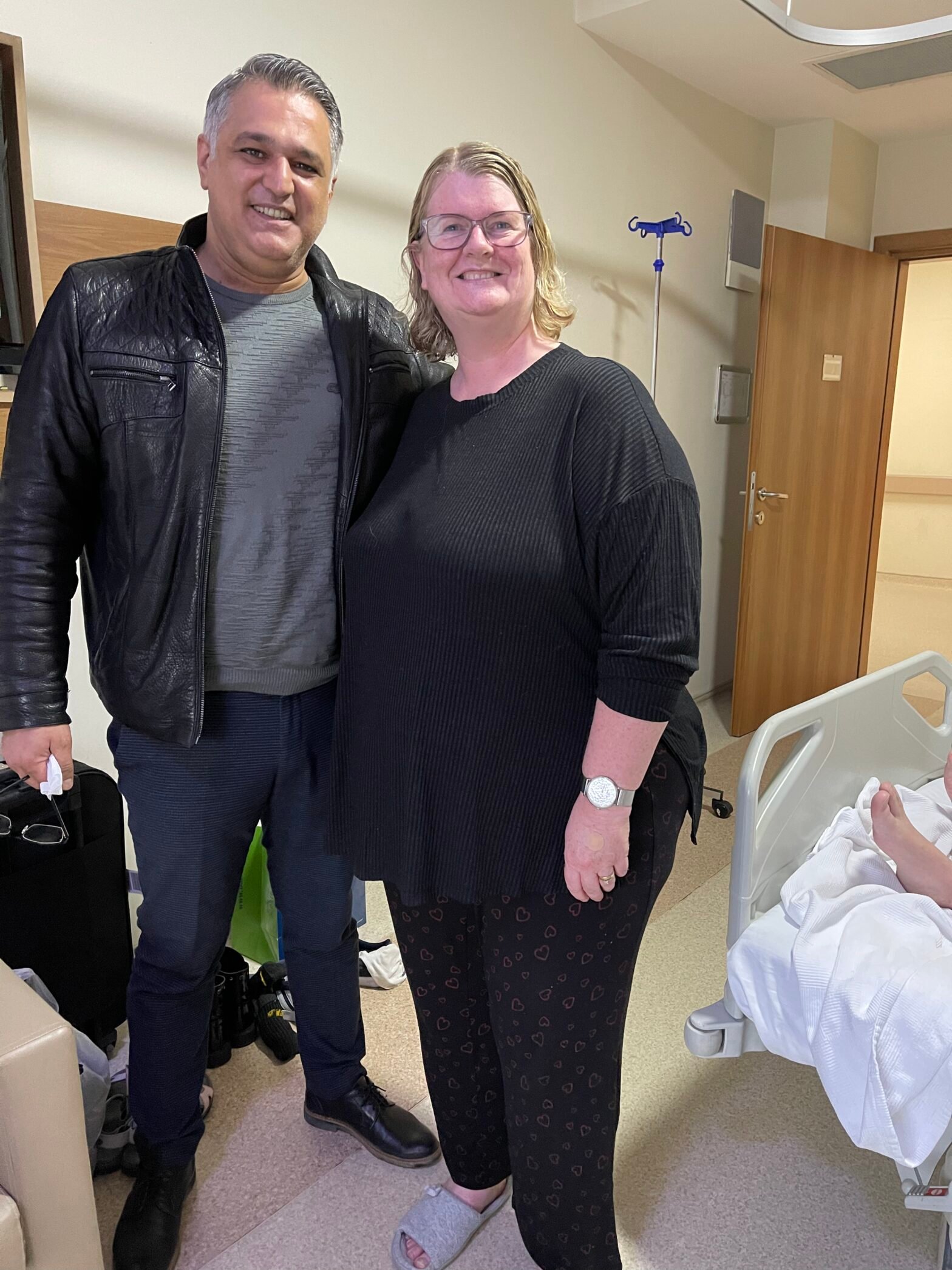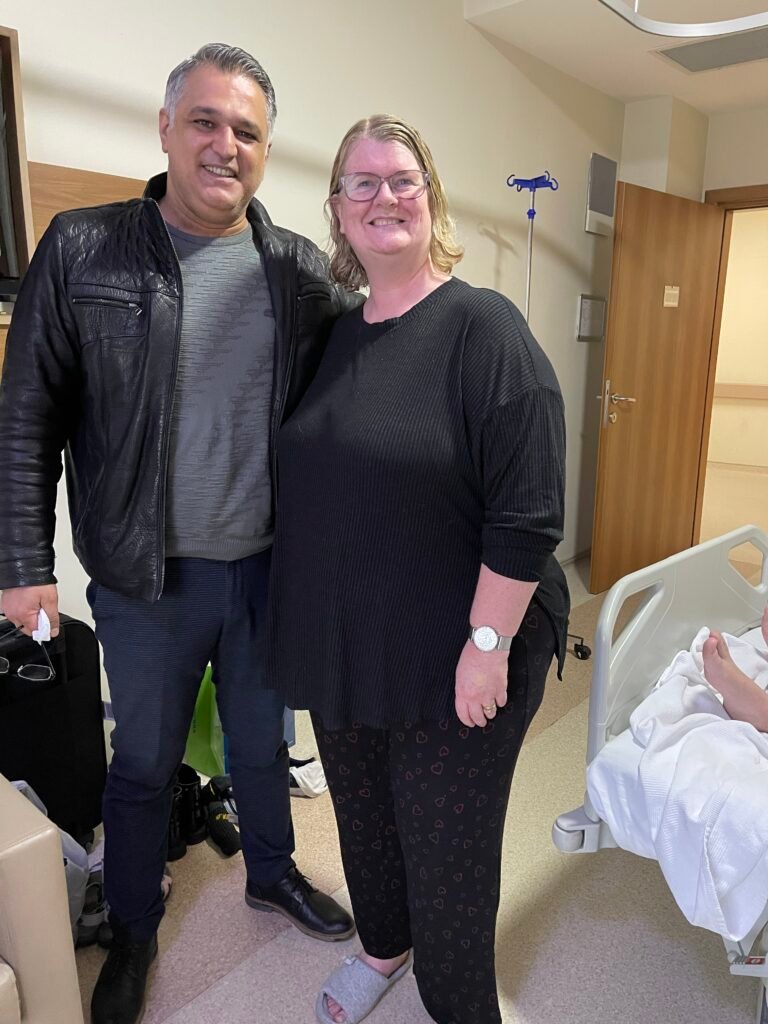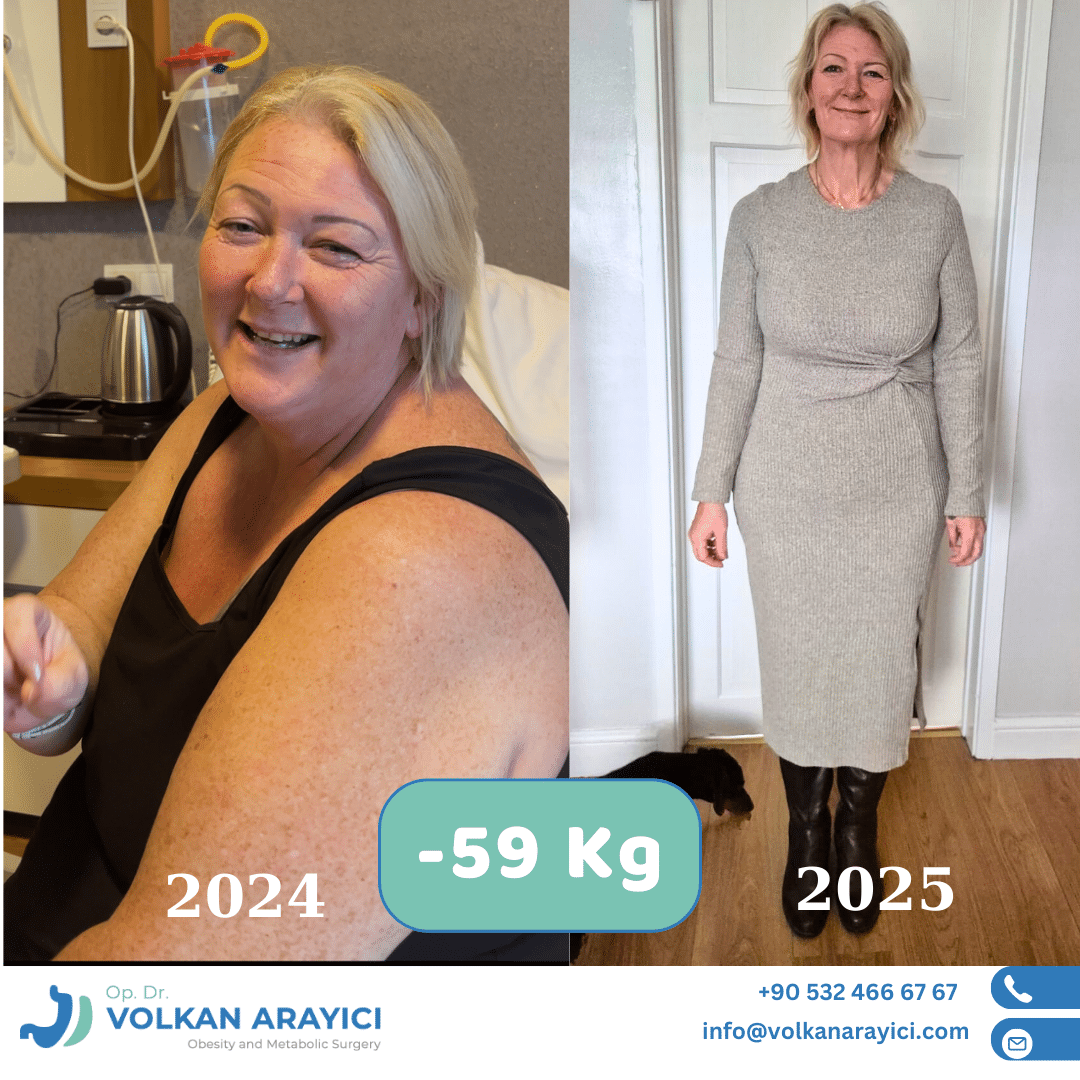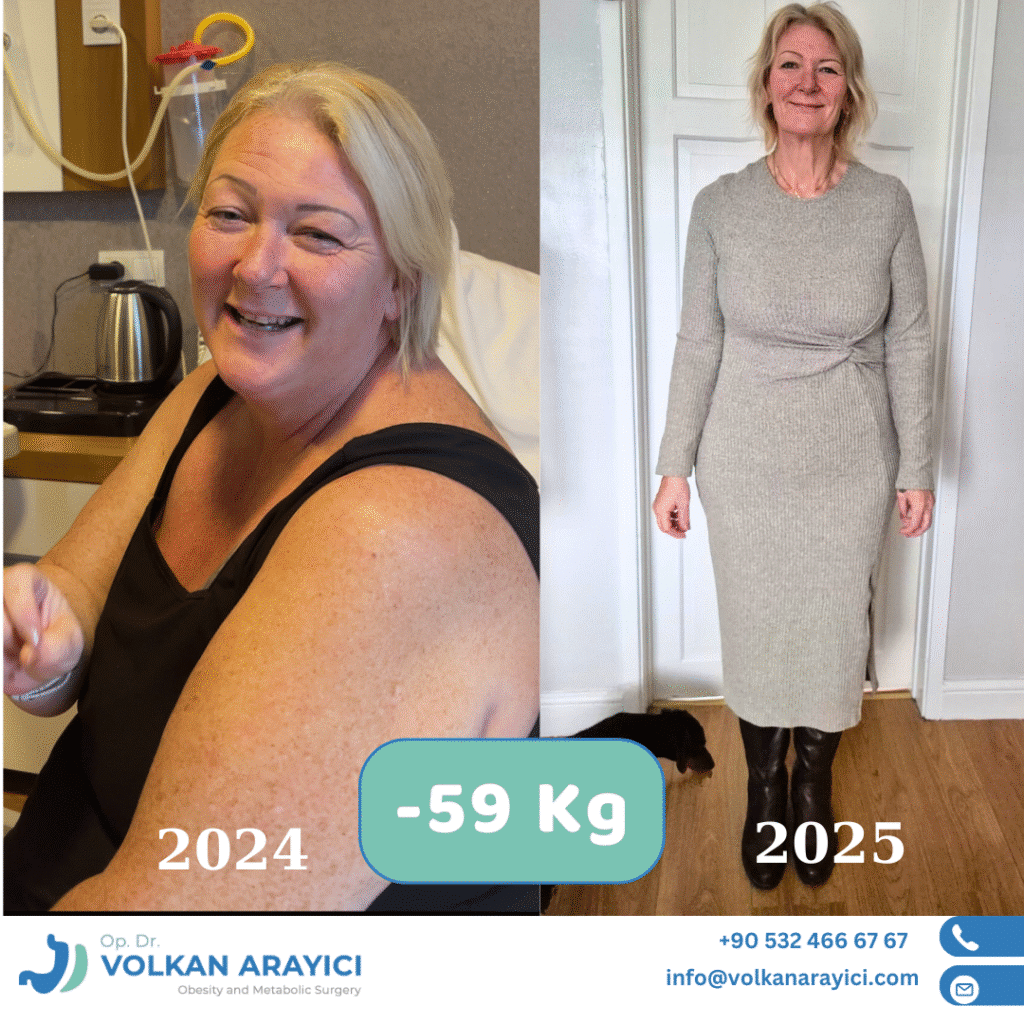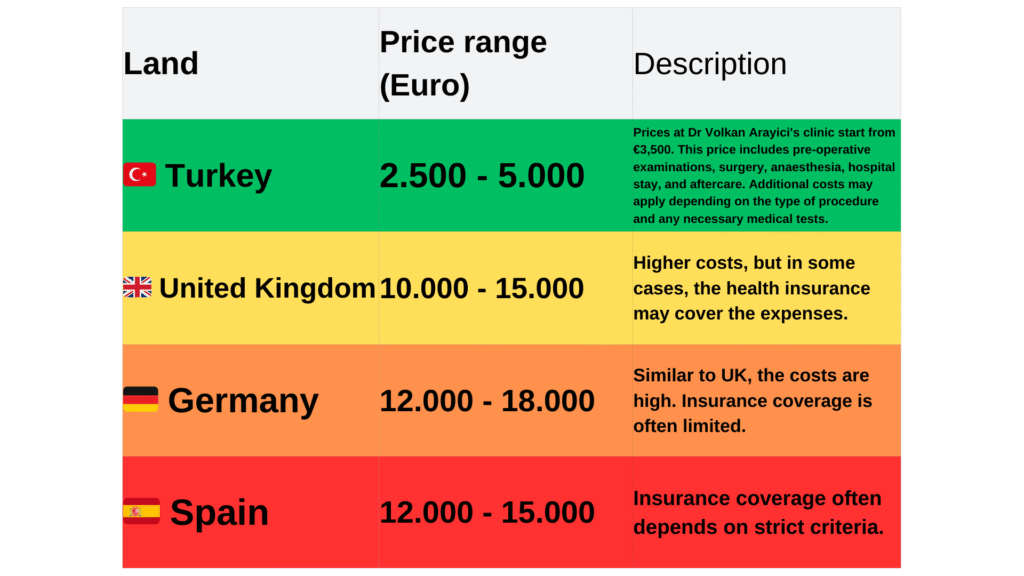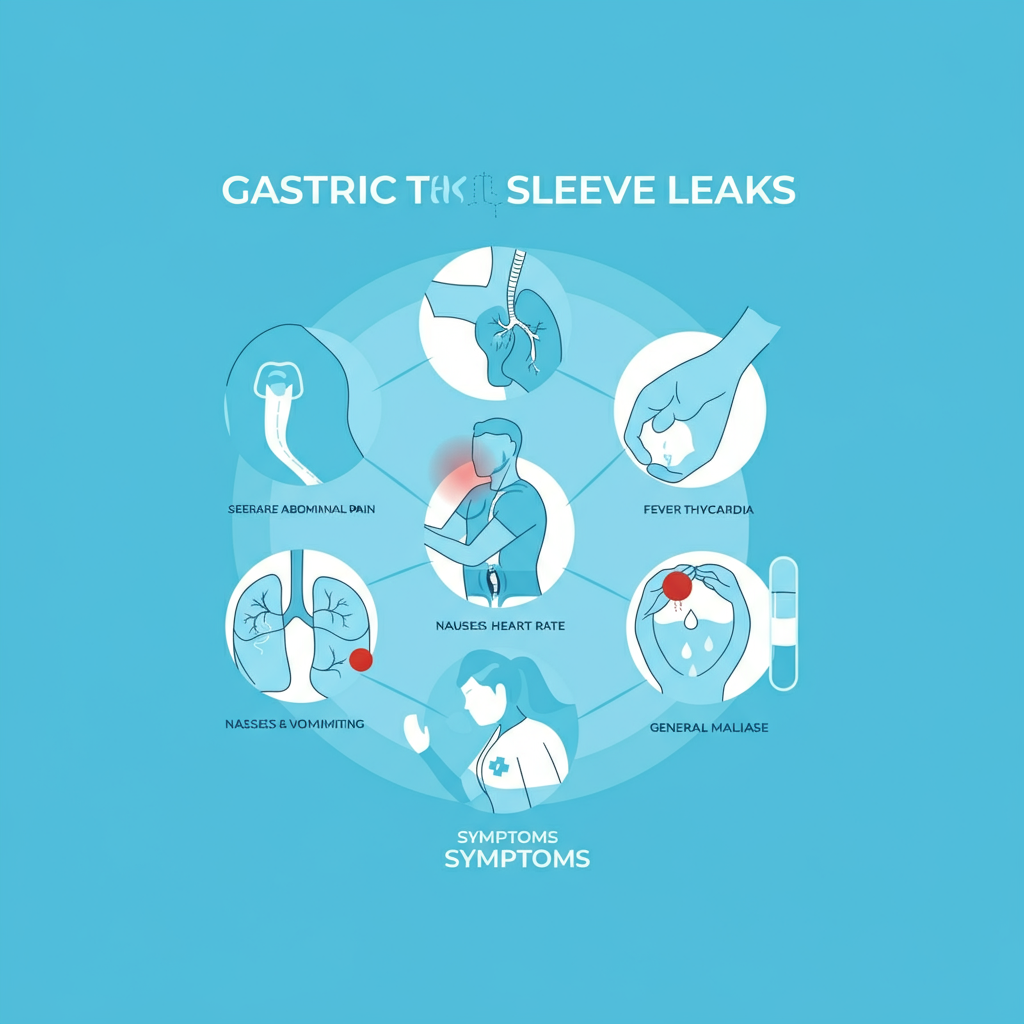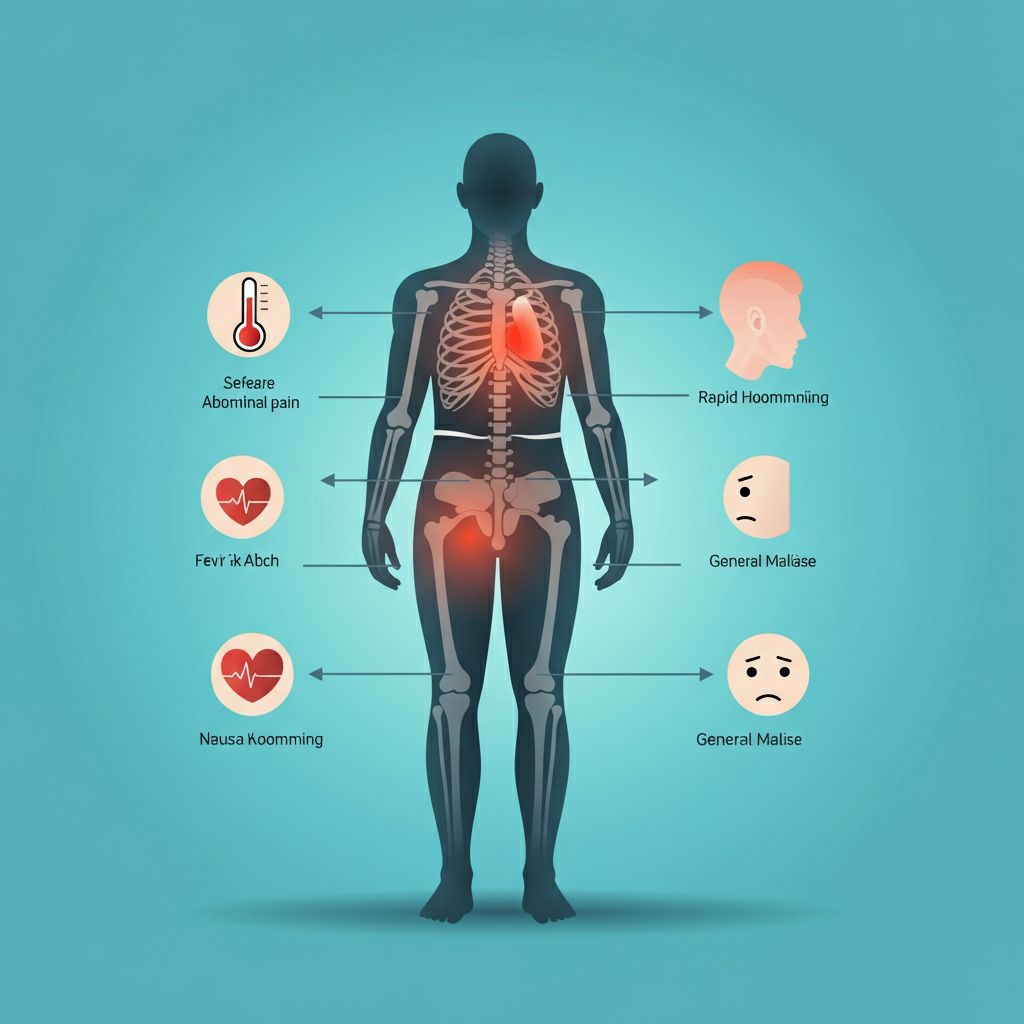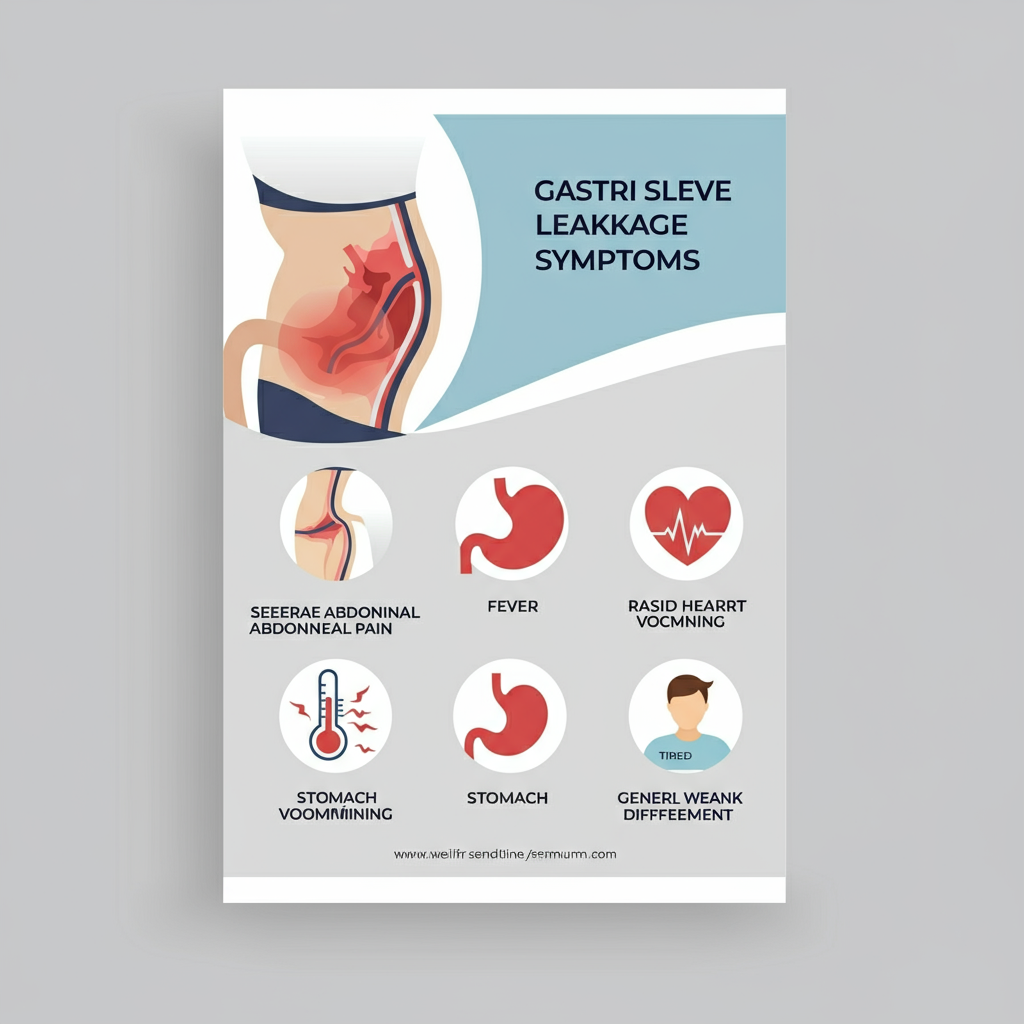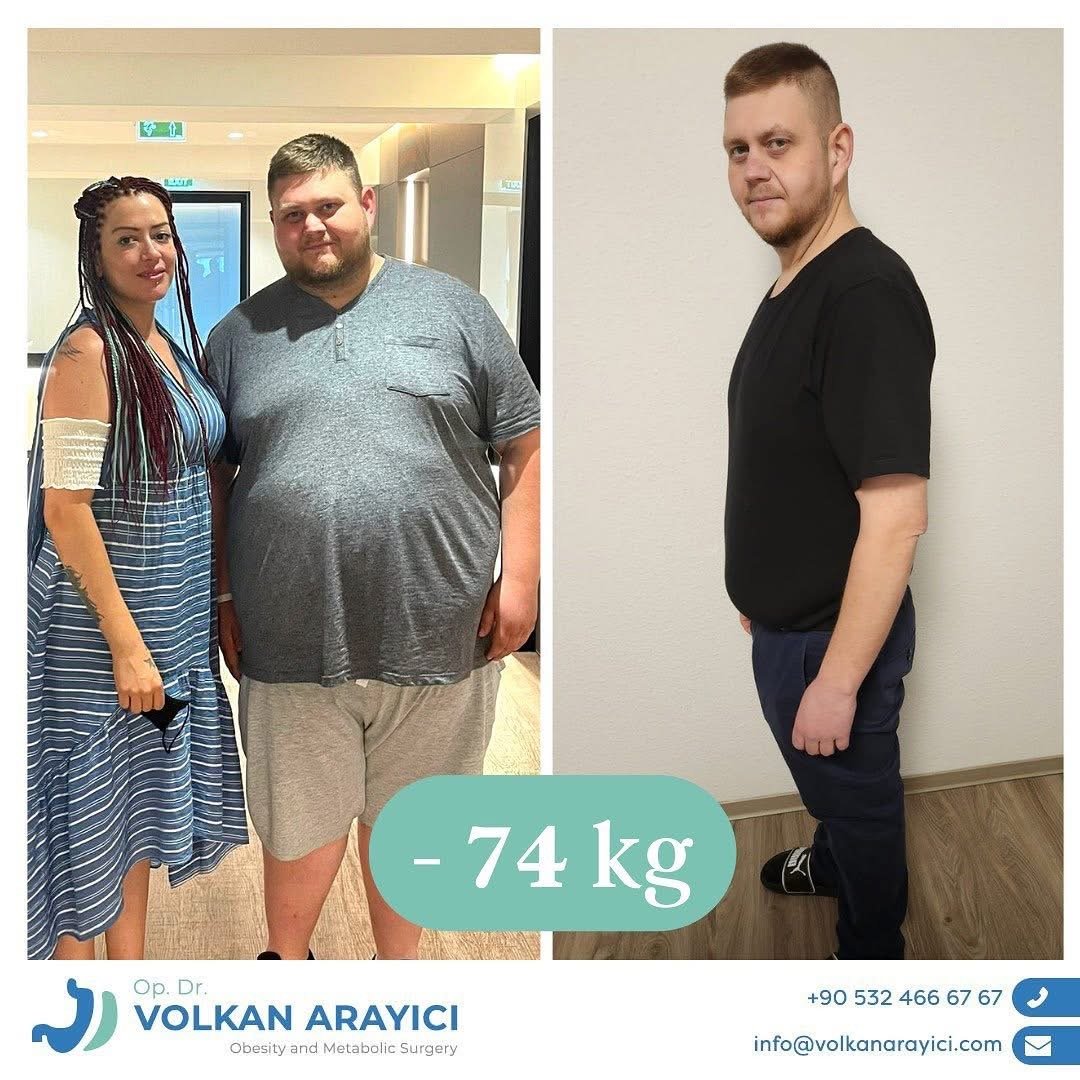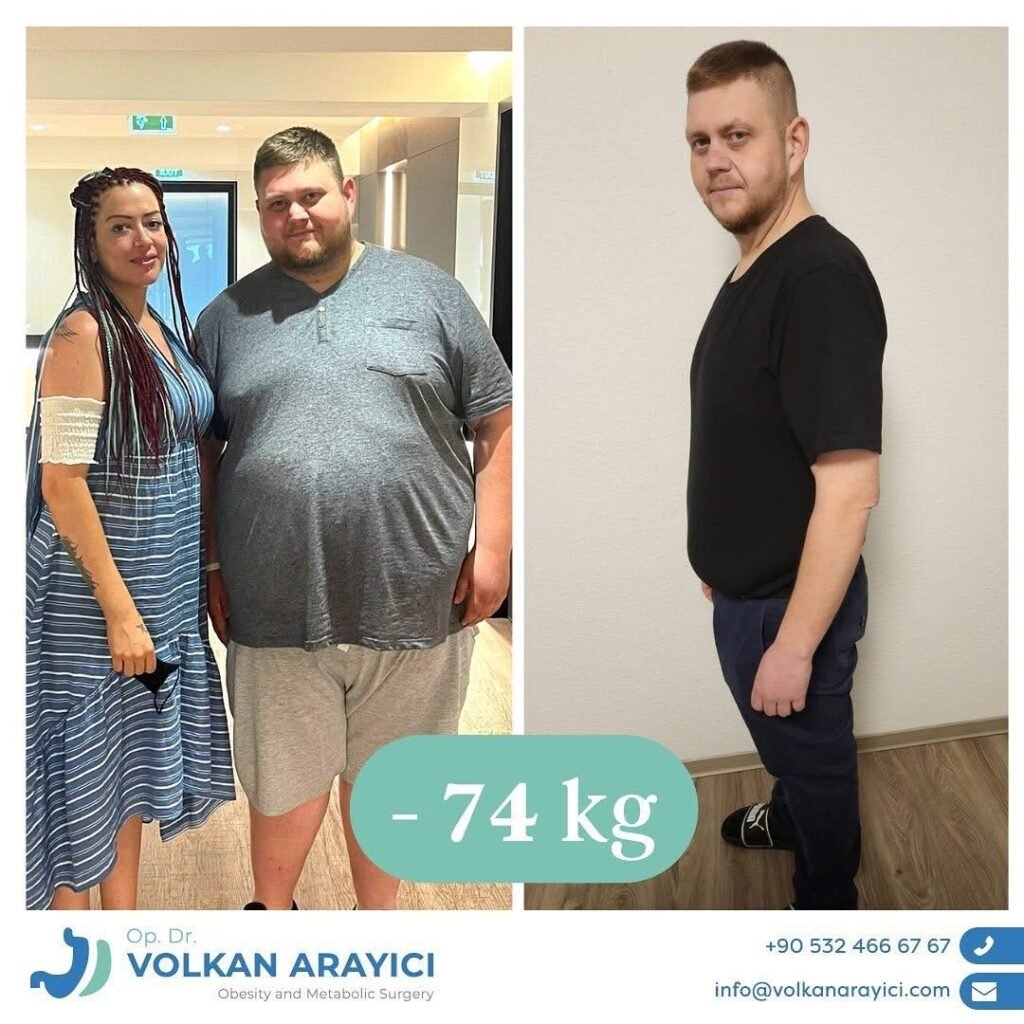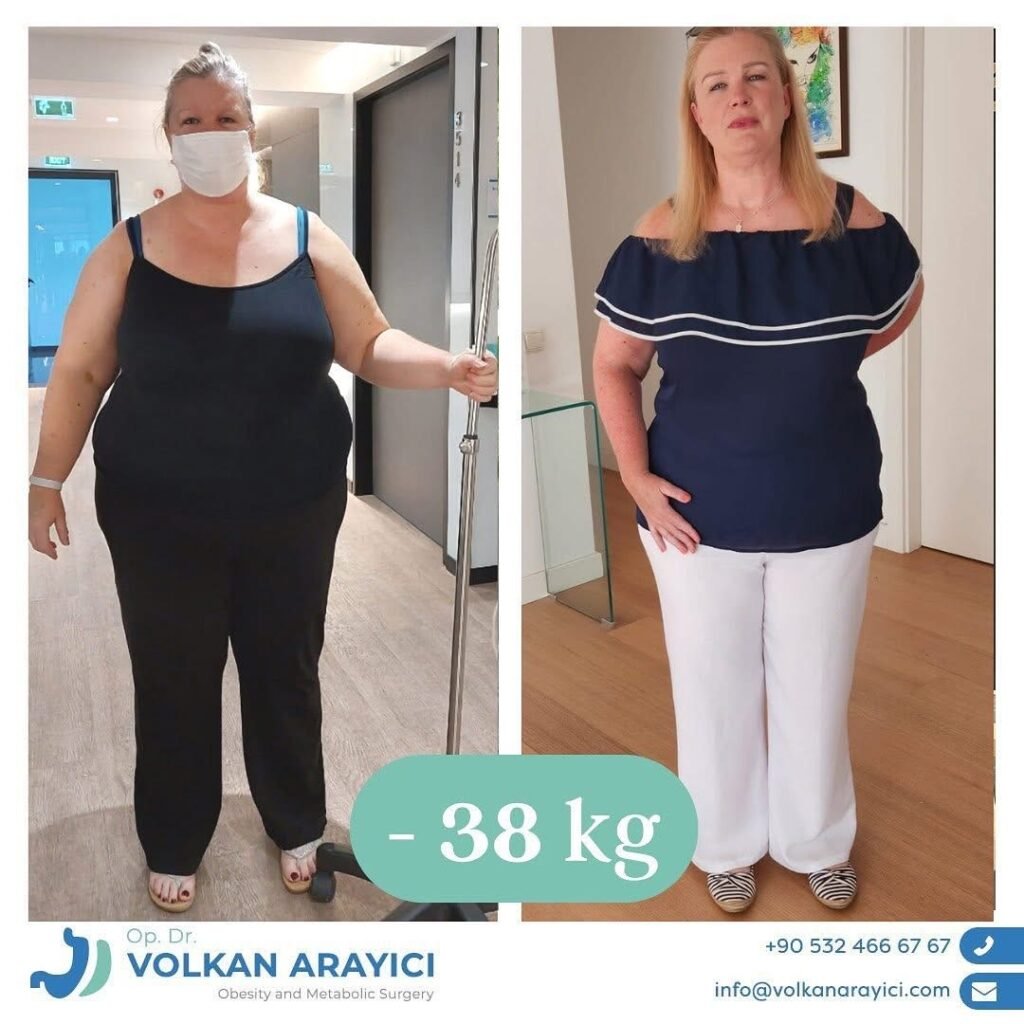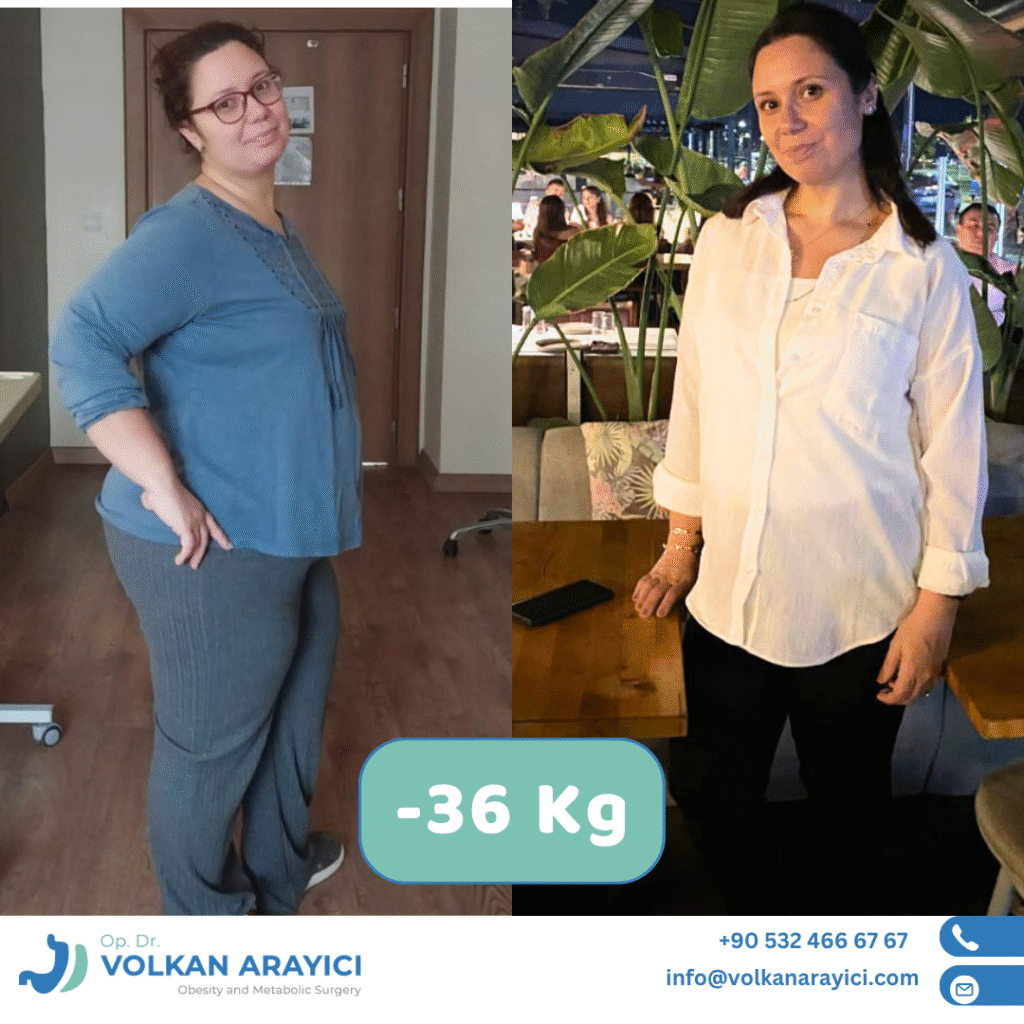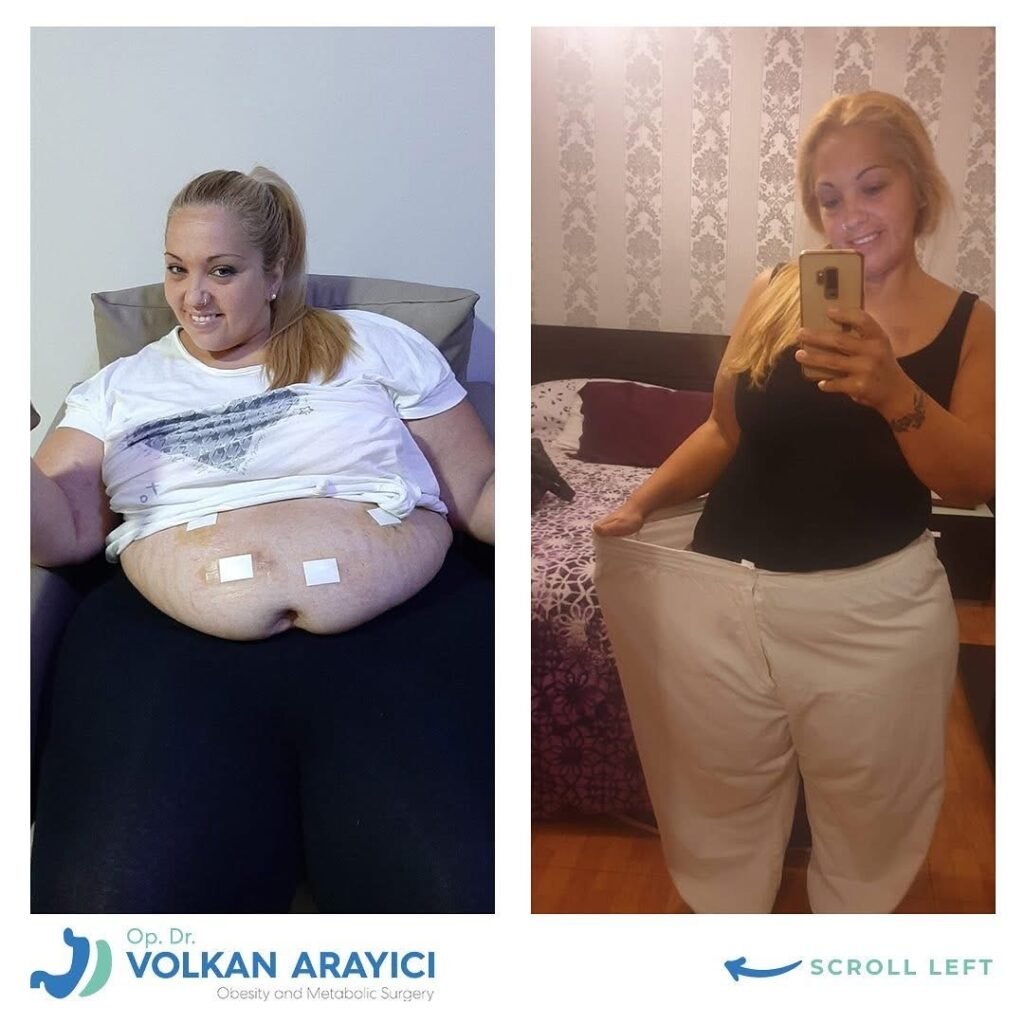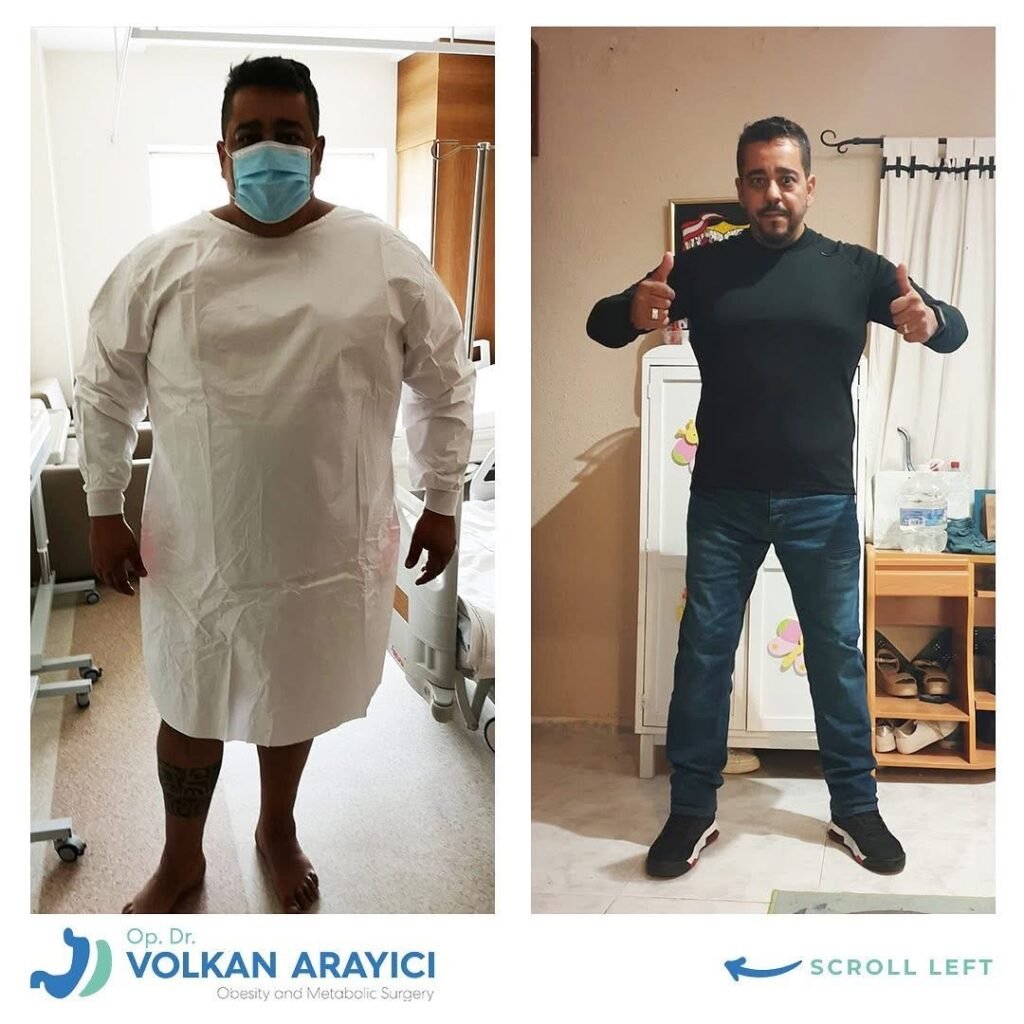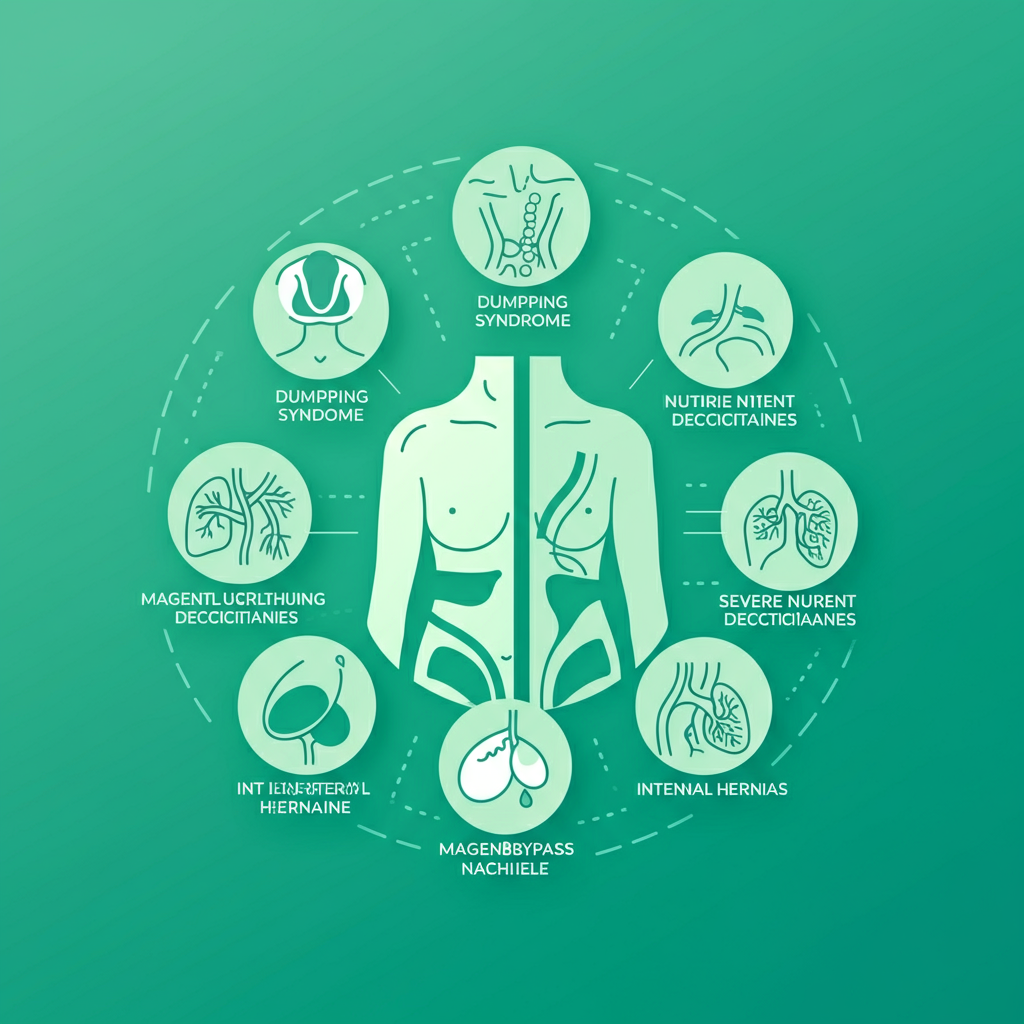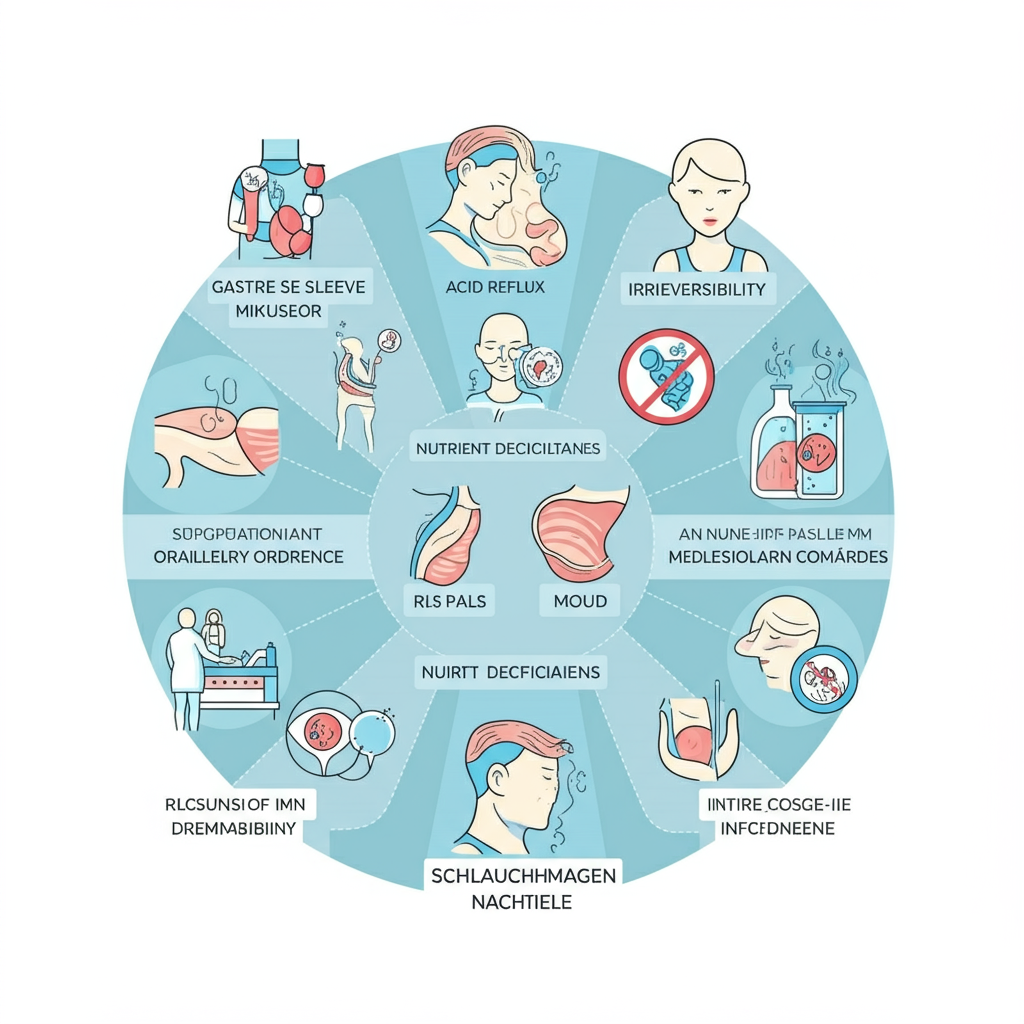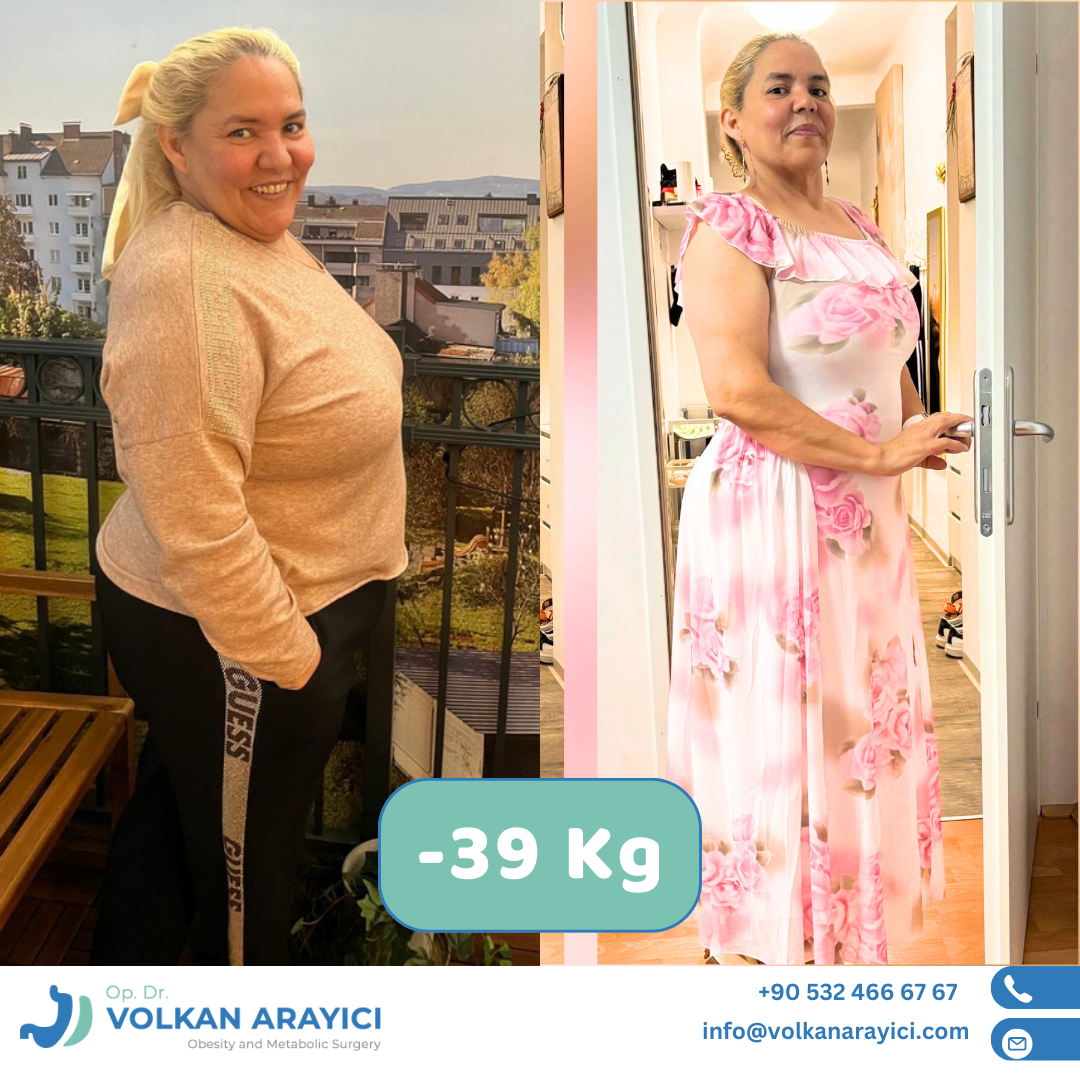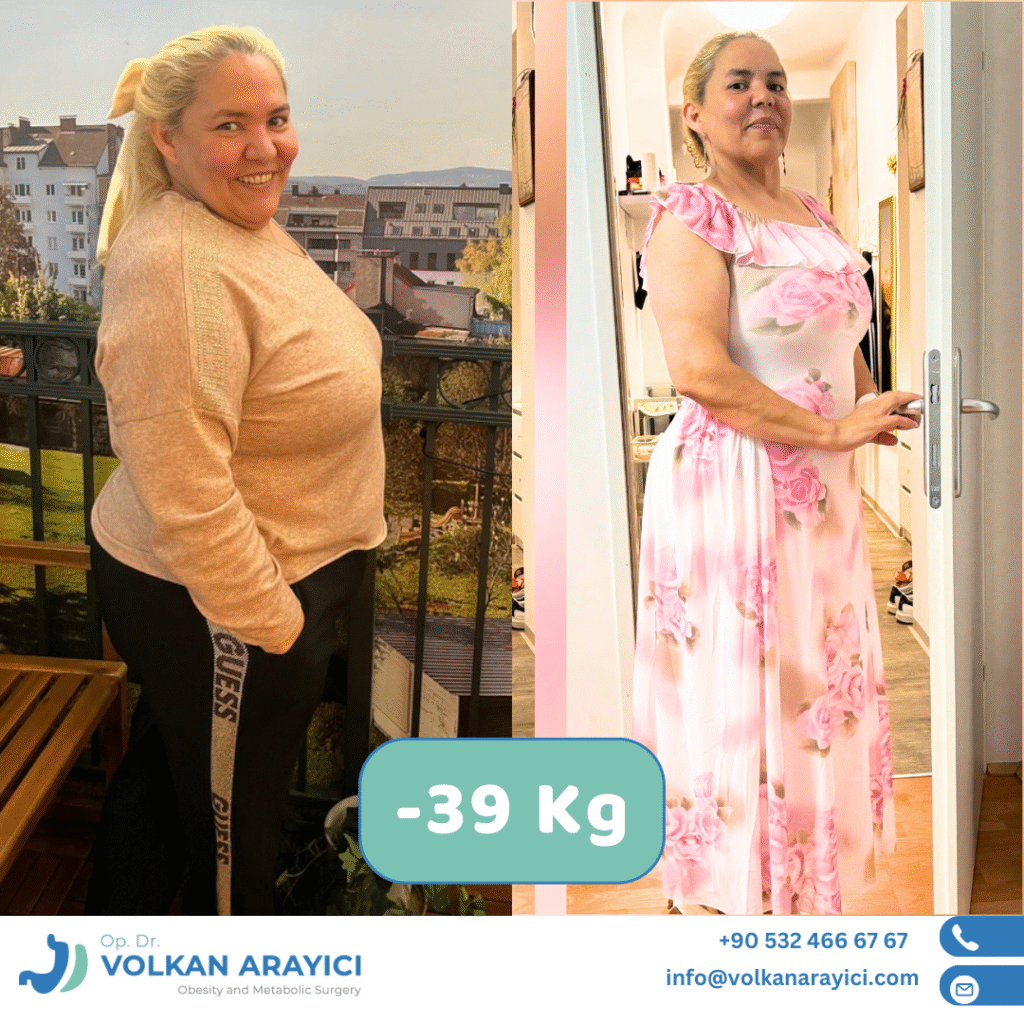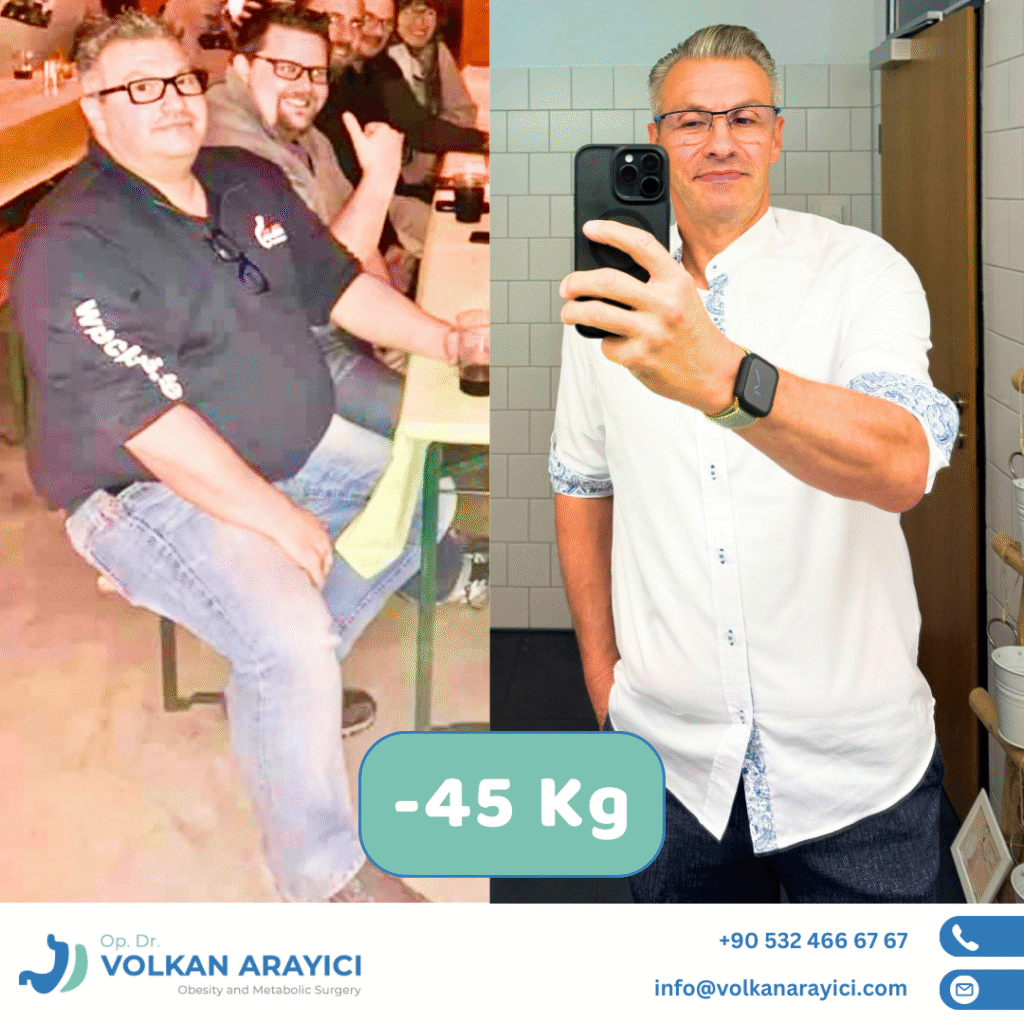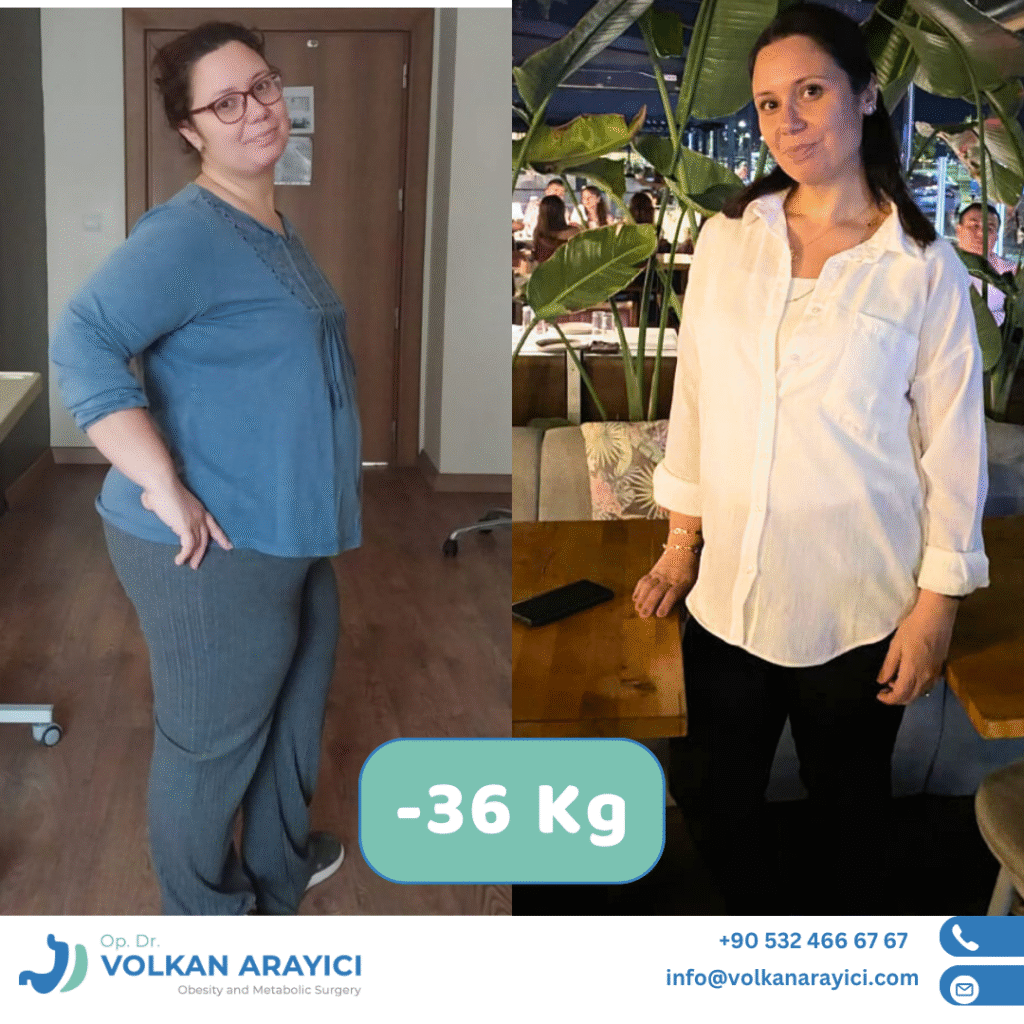Gastric ReSleeve in Turkey
Gastric sleeve surgery is a significant step towards long-term weight loss and improved health, with many patients in Turkey experiencing excellent results, increased mobility, and remission from obesity-related diseases. However, over time, some patients may notice physical changes and begin to worry about their weight, often asking themselves: “Has my stomach pouch stretched?” This question preoccupies every other patient.
You may be surprised at how often this question is asked and how justified it is. Knowing the symptoms, causes, and possible treatments, such as gastric sleeve Turkey, will allow you to confidently take the appropriate next steps.

Understanding the gastric sleeve and the size of the gastric pouch
Sleeve gastrectomy is another name for stomach reduction surgery, in which the stomach is reduced in size to regulate appetite and portion sizes. After removing most of the stomach during surgery, a narrow, tube-shaped or banana shape pouch remains.
This smaller stomach makes it easier to lose weight because it limits food intake and lowers hunger hormones. Even though the stomach does not shrink back to its original size, it can expand again over time, especially if certain behaviors are repeated.
Signs and symptoms of stretched stomach pouch
Recognizing the signs and symptoms of a stretched stomach pouch early on can make a big difference. Some common signs include:
- Feeling hungry more often than before
- The ability to eat larger portions without discomfort
- Reduced feeling of fullness after meals
- Gradual or sudden weight gain
- Loss of the restriction present in the first year
It is important to note that occasional hunger or minor weight fluctuations are normal. However, persistent changes may indicate stomach stretching or other problems that require medical attention.

Factors affecting stretching of the pouch
There are several factors that can contribute to stomach stretching. Understanding them can help you avoid further problems.
Overeating, especially if you repeatedly eat too much, is a major factor. Since the stomach is naturally flexible, sustained pressure can cause it to swell.
Frequent consumption of high-calorie beverages such as milkshakes, beer, and sugary drinks is another factor. Liquids can stretch the stomach and pass through easily without making you feel full.
The size of the stomach pouch can also be affected by poor eating habits such as constant snacking throughout the day, eating too quickly, or insufficient digestion of food. Long-term problems are also more likely after surgery if no aftercare and nutritional counseling are offered.
Is weight gain always due to stretching of the stomach pouch?
Not always, as there are several possible causes for weight gain after gastric sleeve surgery. Hormonal causes, emotional eating, reduced physical activity, and lifestyle changes can all play a role.
For this reason, you should talk to an obesity specialist before assuming that your stomach pouch has stretched. Nutritional counseling, endoscopy, and medical imaging can help determine whether the problem is behavioral or anatomical.
When a change in lifestyle is not enough
Moderate weight gain can often be controlled through better eating habits, portion control, and exercise. However, if the stomach pouch has become severely distended or weight gain continues despite lifestyle changes, surgical treatments may be considered.
For suitable patients, gastric revision surgery in Turkey is a sensible option.
What is Gastric ReSleeve surgery?
ReSleeve, sometimes referred to as gastric ReSleeve, is a revision treatment for patients who have undergone gastric sleeve surgery in the past but have gained weight or developed an enlarged stomach pouch.
During ReSleeve in Turkey, the surgeon reshapes and resizes the stomach to restore restriction. The main goals are to reduce portion sizes, help patients feel full faster, and resume successful weight loss.
While this technique is not suitable for everyone, it can be an effective way for the right individuals to regain control of their health and weight.
Why choose ReSleeve in Turkey?
Turkey’s advanced medical facilities, skilled surgeons, and affordable treatment options have made the country a popular destination worldwide for bariatric and revision surgery. High medical standards and personalized care are beneficial for patients seeking ReSleeve surgery in Turkey.
Bariatric surgery clinics conduct thorough examinations to determine a patient’s suitability for gastric ReSleeve surgery. This methodical approach ensures safety and improves long-term results.
Who is a good candidate for gastric ReSleeve surgery?
Patients who are eligible for ReSleeve typically include those who:
- have initially lost weight after gastric sleeve surgery
- have experienced significant weight gain
- have confirmed stretching of the stomach pouch
- are willing to change their lifestyle and eating habits
- do not have any untreated mental health issues or eating disorders
To ensure the best possible and safest outcome, a thorough medical examination is always required.
Recovery and expectations after ReSleeve
Recovery after gastric ReSleeve surgery is comparable to that after conventional gastric sleeve surgery, but may vary depending on the complexity of the procedure and the patient’s health.
After surgery, patients typically follow a strict plan that includes nutritional supplements, liquid and soft foods, and a gradual return to normal activities. Regular medical checkups and maintaining a healthy lifestyle are essential for long-term success.
Prevent future stretching of the bag
Prevention is crucial, regardless of whether you have undergone gastric bypass surgery or are considering revision surgery. You can protect your stomach by following your obesity team’s recommendations on meal planning, portion sizes, and food choices.
Long-term success depends primarily on eating slowly, avoiding liquid calories, drinking plenty of water between meals, and exercising regularly.
Dr. Volkan Arayıcı: A Trusted Expert in Gastric ReSleeve in Turkey
For patients seeking reassurance and expert care during their revision journey, Dr. Volkan Arayıcı stands out as a leading figure in the field of bariatric surgery. With years of specialized experience performing Gastric ReSleeve procedures, Dr. Arayıcı has honed his skills to address the unique complexities of revision cases with precision and safety. His deep commitment to patient well-being ensures that every individual receives a personalized assessment and a treatment plan tailored to their specific anatomical needs. By combining his extensive surgical background with a compassionate approach, Dr. Arayıcı provides patients in Turkey with the confidence and medical support necessary to successfully get back on track with their weight loss goals.
Finally: Listen to your body
You are taking care of your health when you ask yourself: Has my gastric sleeve bag stretched? The search for the best solution begins with this realization.
A professional assessment is crucial for gastric revision surgery in Turkey. Options such as ReSleeve can help you regain control and confidently continue on your weight loss journey under expert supervision.
Frequently Asked Questions: Gastric ReSleeve Surgery in Turkey
What is Gastric ReSleeve surgery?
Gastric ReSleeve, also known as a revision sleeve, is a procedure designed for patients who have previously undergone a gastric sleeve operation but have experienced weight regain or an enlarged stomach pouch. During this surgery, the surgeon reshapes and resizes the stomach to restore the feeling of restriction. This helps you feel full faster, reduce portion sizes, and get back on track with your weight loss goals.
How do I know if my stomach pouch has stretched?
It is very common for patients to worry about this. While some stomach expansion is natural over time, there are specific signs that may indicate significant stretching:
Increased hunger: Feeling hungry much more often than before.
Larger portions: Being able to eat significantly more food without feeling discomfort.
Reduced fullness: Losing that “full” feeling after eating a meal.
Weight gain: Experiencing gradual or sudden weight gain.
If you notice these changes persisting, it is important to speak with a specialist rather than assuming the worst. Sometimes, lifestyle adjustments can help before surgery is needed.
What causes the stomach pouch to stretch?
The stomach is a flexible organ, and several factors can contribute to it expanding after your initial surgery:Overeating: Consistently eating past the point of fullness puts pressure on the pouch.
High-calorie liquids: Drinks like milkshakes, sugary sodas, or alcohol pass through the stomach quickly without providing fullness, often leading to stretching.
Eating habits: Snacking constantly, eating too quickly, or not chewing food thoroughly can impact the pouch size.
Lack of aftercare: Skipping nutritional counseling and follow-up appointments can lead to slipping back into old habits.
Who is a good candidate for Gastric ReSleeve in Turkey?
You may be a suitable candidate for this revision surgery if you:
Initially lost weight successfully with your first gastric sleeve.
Have experienced significant weight regain.
Have medically confirmed stretching of the stomach pouch (usually via endoscopy or imaging).
Are committed to changing your lifestyle and eating habits.
Do not have untreated eating disorders or mental health concerns.
A thorough medical examination is always required to ensure this is the safest and most effective option for you.
Why is Turkey a popular destination for this surgery?
Turkey has become a global hub for bariatric and revision surgeries due to a combination of high-quality care and affordability. Patients choose Turkey for:
Advanced facilities: Clinics are equipped with modern medical technology.
Skilled surgeons: Many doctors have extensive experience in complex revision procedures.
Comprehensive care: Clinics often provide thorough examinations and personalized attention.
Cost-effectiveness: Treatment options are often more affordable than in many other countries without compromising on safety standards.
What can I expect during recovery?
Recovery from a ReSleeve is generally similar to your original gastric sleeve surgery, though it varies by patient. You will typically follow a strict post-operative plan that includes:
A phased diet starting with liquids, moving to soft foods, and eventually solid foods.
Taking prescribed nutritional supplements.
A gradual return to daily physical activities.
Regular checkups and sticking to your new nutritional plan are essential for long-term success.


